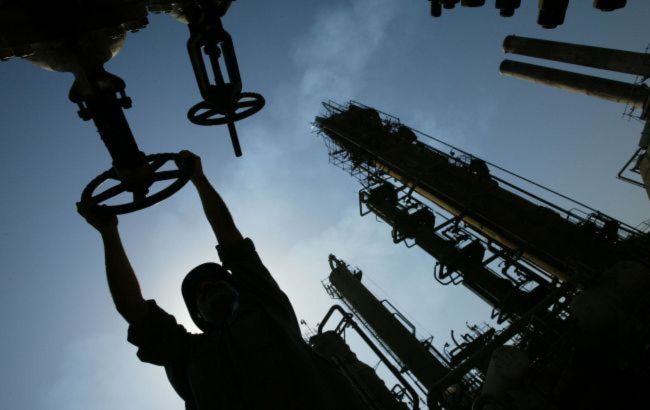OPEC+ increases oil production amid concerns over supply disruptions from Russia - Reuters
 Illustrative photo: OPEC+ boosts output over fears of supply disruptions from Russia (Getty Images)
Illustrative photo: OPEC+ boosts output over fears of supply disruptions from Russia (Getty Images)
OPEC+ member countries have agreed to increase daily oil production by 547,000 barrels starting in September. The move comes amid growing concerns over potential supply disruptions related to the situation around Russia, according to Reuters.
As reported by the outlet, this step represents a full and early rollback of the largest OPEC+ production cuts. It also includes a separate increase in production by the United Arab Emirates, about 2.5 million barrels per day, or roughly 2.4% of global demand.
Currently, eight OPEC+ members held a brief meeting amid increased US pressure on India to stop purchasing Russian oil. The US effort is part of Washington’s broader push to bring Moscow to the table for peace negotiations with Ukraine. President Donald Trump has stated that he aims to reach a peace deal by August 8.
In a post-meeting statement, OPEC+ cited a healthy global economy and low stockpiles as key reasons for the decision.
According to Reuters, oil prices remain high despite the production increase. On Friday, Brent crude closed at around $70 per barrel, well above the 2025 low of about $58 in April, partly due to seasonal demand growth.
"Given fairly strong oil prices at around $70, it does give OPEC+ some confidence about market fundamentals," said Amrita Sen, co-founder of Energy Aspects, adding that the market structure was also indicating tight stocks.
Reuters also reported, citing sources, that the eight countries plan to meet again on September 7 to consider restoring another round of production cuts totaling around 1.65 million barrels per day, currently in effect until the end of next year.
What is OPEC+?
OPEC+ is an expanded alliance of the Organization of the Petroleum Exporting Countries (OPEC) and non-member oil-producing nations. It includes Russia, Kazakhstan, Mexico, Oman, and others. Formed in 2016, the group coordinates oil production policies to stabilize the global oil market and influence prices through agreed output adjustments.
Its main goal is to balance global oil supply and demand, directly affecting oil prices worldwide. OPEC+ decisions have broad implications for the global economy, as oil remains a crucial energy source. Governments and financial markets closely monitor the group’s meetings, since even minor quota changes can impact fuel prices and economic stability.
Chances of India giving up Russian oil
Several Western media outlets recently reported that Indian state-run refiners halted Russian oil purchases last week due to reduced discounts and US President Donald Trump’s warnings of possible sanctions.
Trump also warned of a potential 25% tariff on Indian goods.
According to Bloomberg, as of August 1, at least four tankers carrying Russian oil were stranded off India’s coast. However, the New York Times noted that despite Trump’s threats, India is unlikely to completely give up Russian oil.
For more on whether Trump will penalize India over Russian oil, see the full RBC-Ukraine report.

